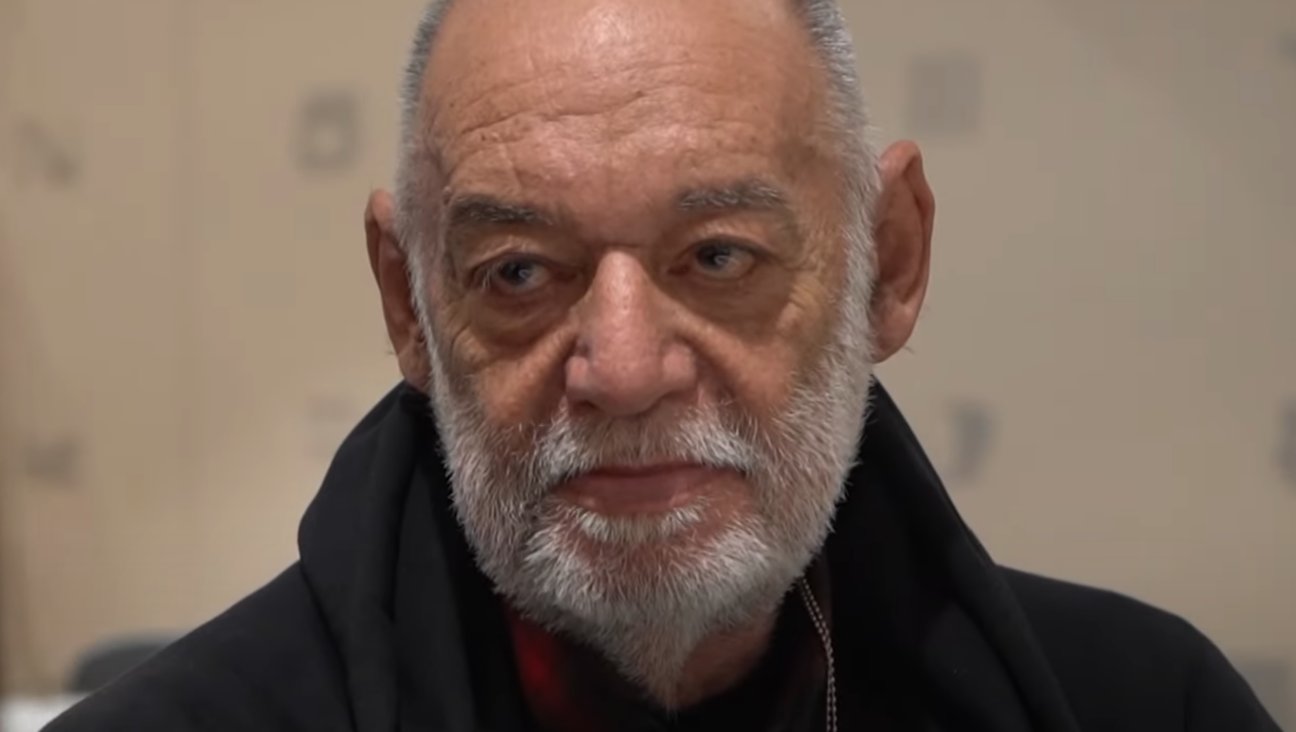Put Abbas to the Test

Image by getty images
The tendentious exchange between President Obama and Prime Minister Benjamin Netanyahu these last few days underscores how differently each man views the third party in the on-again, off-again Israeli-Palestinian negotiations.
That would be Palestinian Authority President Mahmoud Abbas.
So diametrically opposed are Obama and Netanyahu in their public assessment of the Palestinian leader that there may be only one way to find out who is right. And that is to test whether or not he’s bluffing.
Obama had oodles of praise for Abbas in an interview with Bloomberg Views released just as Netanyahu was arriving in the United States — an interview with an important message and terrible timing.
“I believe that President Abbas is sincere about his willingness to recognize Israel and its right to exist, to recognize Israel’s legitimate security needs, to shun violence, to resolve these issues in a diplomatic fashion that meets the concerns of the people of Israel,” Obama told the columnist Jeffrey Goldberg. “And I think that this is a rare quality not just within the Palestinian territories, but in the Middle East generally.”
And: “I think nobody would dispute that whatever disagreements you may have with him, [Abbas] has proven himself to be somebody who has been committed to nonviolence and diplomatic efforts to resolve this issue.”
Well, actually, Netanyahu would dispute that. And did. In his remarks) preceding the bilateral talks with Obama at the White House yesterday, the prime minister listed all the steps Israel has taken in the last 20 years to further the cause of peace.
“And when you look at what we got in return, it’s been scores of suicide bombings, thousands of rockets on our cities fired from the areas we vacated, and just incessant Palestinian incitement against Israel,” Netanyahu said.
“So Israel has been doing its part, and I regret to say that the Palestinians haven’t.”
If Obama went overboard in his praise of Abbas, Netanyahu overlooked the relative quiet that Israel is enjoying, thanks to the security barrier and unprecedented cooperation between the Palestinian Authority and Israeli security forces.
Incitement continues, but so does Jewish settlement building on Palestinian land — at a quickening pace. The rockets Netanyahu referred to came from Hamas-ruled Gaza, and if there’s an opportunity to help Hamas’s stock fall even farther, it’s in making a deal with the Abbas government.
In the end, that may be the only way to prove whether Abbas is a partner for peace, or the primary stumbling block in negotiations. Goldberg challenged Obama on just this point, noting that along with Abbas’s fine attributes, “he is also the leader of a weak, corrupt and divided Palestinian entity that is already structurally semi-powerless.” Is this the guy to deliver an agreement and persuade Palestinians to accept Israel, as a permanent neighbor?
“Look, I think it has to be tested,” Obama answered. “The question is: What is lost by testing it?”
And that is the question. What is lost by testing whether this Palestinian leader, unlike his predecessors, will be the one to finally be able to master history instead of being smothered by it? To make the compromises necessary to ensure a state for his people and the security Israelis need and deserve?
It may be too much to ask of Netanyahu, a leader with plenty of political capital and absolutely no enunciated vision of how to bring about the two-state solution he professes to want. It may be wishful thinking to imagine him swallowing his pride, agreeing with Obama, calling Abbas’s bluff — and negotiating as if he really meant it.
“We do not know what a successor to Abbas will look like,” Obama warned.
Does Israel really want to find out?
A message from our Publisher & CEO Rachel Fishman Feddersen

I hope you appreciated this article. Before you go, I’d like to ask you to please support the Forward’s award-winning, nonprofit journalism so that we can be prepared for whatever news 2025 brings.
At a time when other newsrooms are closing or cutting back, the Forward has removed its paywall and invested additional resources to report on the ground from Israel and around the U.S. on the impact of the war, rising antisemitism and polarized discourse.
Readers like you make it all possible. Support our work by becoming a Forward Member and connect with our journalism and your community.
— Rachel Fishman Feddersen, Publisher and CEO





















